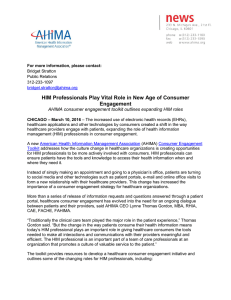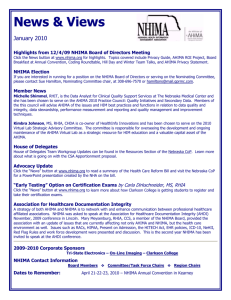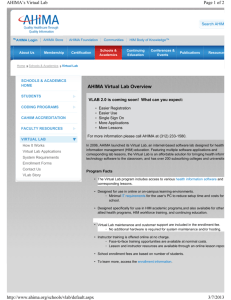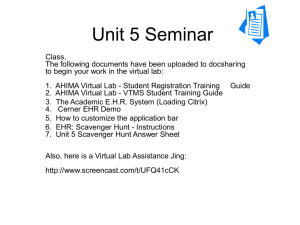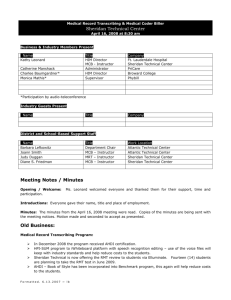AHIMA`s Newest Toolkit Focuses on Information Governance
advertisement
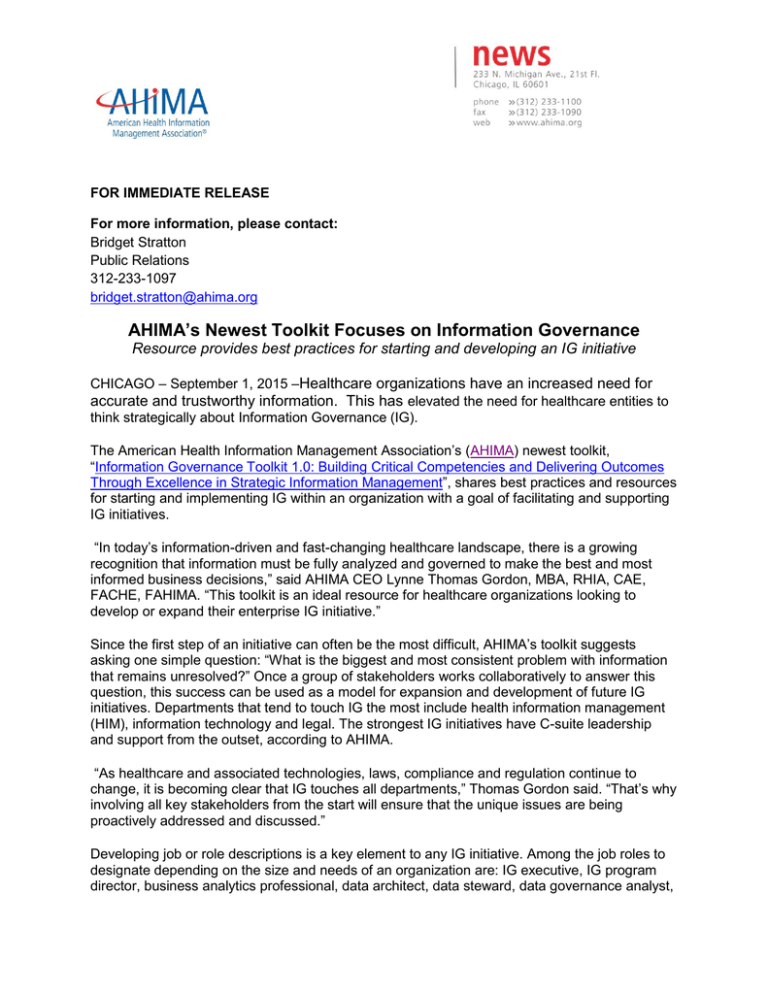
FOR IMMEDIATE RELEASE For more information, please contact: Bridget Stratton Public Relations 312-233-1097 bridget.stratton@ahima.org AHIMA’s Newest Toolkit Focuses on Information Governance Resource provides best practices for starting and developing an IG initiative CHICAGO – September 1, 2015 –Healthcare organizations have an increased need for accurate and trustworthy information. This has elevated the need for healthcare entities to think strategically about Information Governance (IG). The American Health Information Management Association’s (AHIMA) newest toolkit, “Information Governance Toolkit 1.0: Building Critical Competencies and Delivering Outcomes Through Excellence in Strategic Information Management”, shares best practices and resources for starting and implementing IG within an organization with a goal of facilitating and supporting IG initiatives. “In today’s information-driven and fast-changing healthcare landscape, there is a growing recognition that information must be fully analyzed and governed to make the best and most informed business decisions,” said AHIMA CEO Lynne Thomas Gordon, MBA, RHIA, CAE, FACHE, FAHIMA. “This toolkit is an ideal resource for healthcare organizations looking to develop or expand their enterprise IG initiative.” Since the first step of an initiative can often be the most difficult, AHIMA’s toolkit suggests asking one simple question: “What is the biggest and most consistent problem with information that remains unresolved?” Once a group of stakeholders works collaboratively to answer this question, this success can be used as a model for expansion and development of future IG initiatives. Departments that tend to touch IG the most include health information management (HIM), information technology and legal. The strongest IG initiatives have C-suite leadership and support from the outset, according to AHIMA. “As healthcare and associated technologies, laws, compliance and regulation continue to change, it is becoming clear that IG touches all departments,” Thomas Gordon said. “That’s why involving all key stakeholders from the start will ensure that the unique issues are being proactively addressed and discussed.” Developing job or role descriptions is a key element to any IG initiative. Among the job roles to designate depending on the size and needs of an organization are: IG executive, IG program director, business analytics professional, data architect, data steward, data governance analyst, master data management analyst, business owner, chief health information officer and chief data officer. Other key items in the toolkit include: The Information Governance Principles for Healthcare (IGPHC)™ Inventory of sample enterprise information management policies Four IG case studies initiated by AHIMA (Academic Medical Center System, Interstate Integrated Delivery System, Large Regional Integrated Delivery System, Four-Hospital Integrated Delivery System) Organizational Charts and Committee Structure Organizational Communications Planning Training Plan ### About AHIMA The American Health Information Management Association (AHIMA) represents more than 101,000 health information professionals in the United States and around the world. AHIMA is committed to promoting and advocating for high quality research, best practices and effective standards in health information and to actively contributing to the development and advancement of health information professionals worldwide. AHIMA’s enduring goal is quality healthcare through quality information. www.ahima.org
